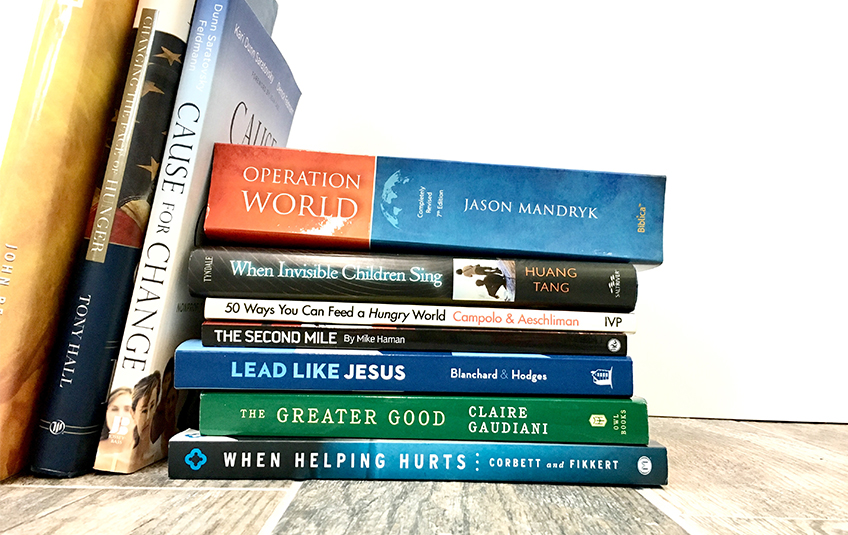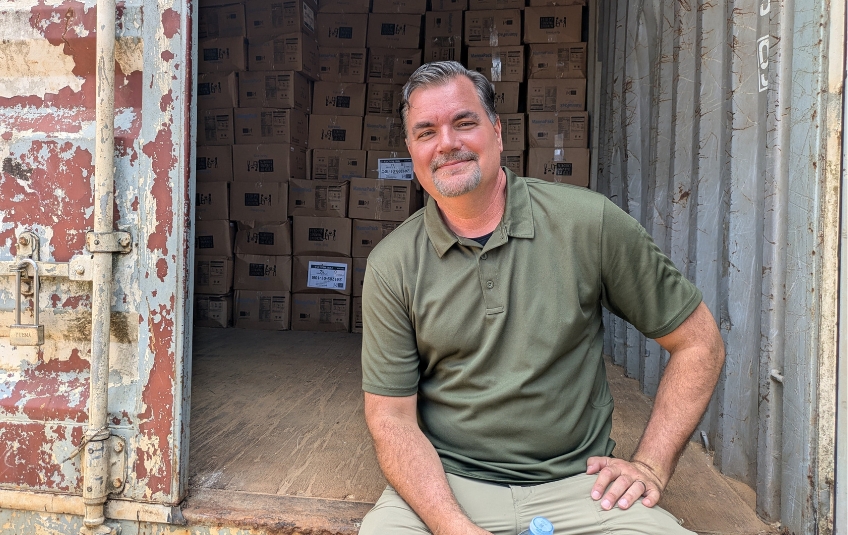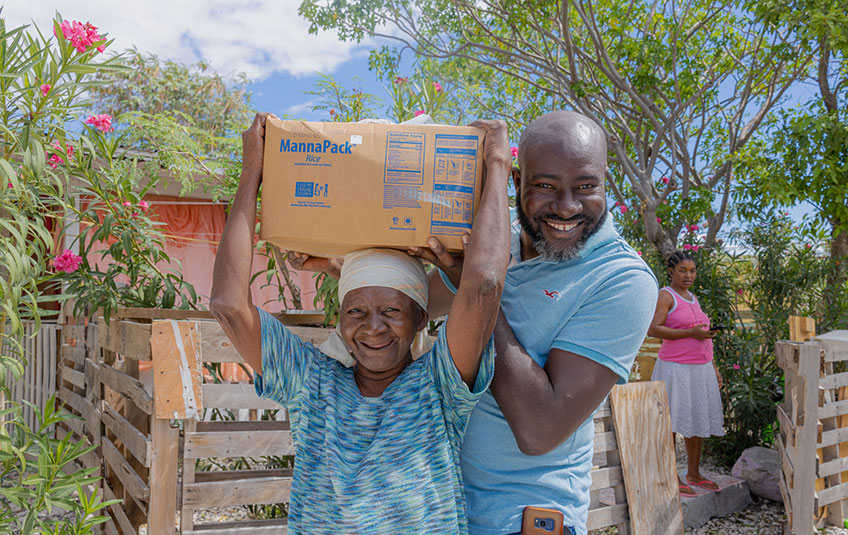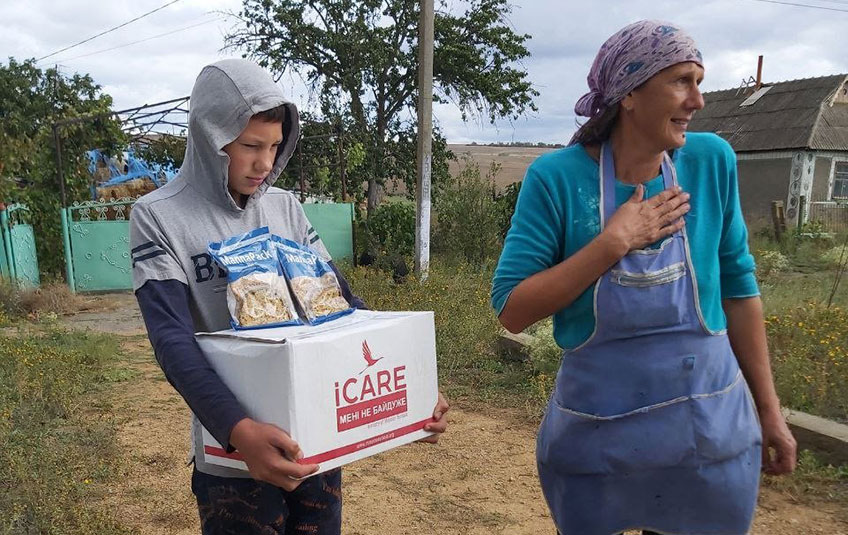The Feed
Stories of Feeding God's Children Hungry in Body & Spirit
There’s an old saying that knowledge is power, and I believe this to be true. In that vein, Feed My Starving Children staff share our “must-reads” in the fight against hunger to better equip you -- our donors and volunteers -- in this battle.
We’re calling it our “must-reads,” but you’ll find more than books on this list. We’re excited to include podcasts as well.
Share your favorite resource with us in the Hunger to Hope: Dive Deeper with FMSC closed Facebook group. This is also a safe place for discussion about hunger and the following resources. The group will also act as a book club, where you can choose to read and discuss our quarterly book choice (or not!) The level of engagement you want to have is up to you. For those who are local to the Twin Cities, we will have regular meetups as well, so join the group for more info!
Laura Kern, Human Resources Project Manager

I’m an audio gal. Two podcast recommendations, one little and one gigantic: Target Zero Hunger FAO produced by the UN tackles global food scarcity. With a biweekly production schedule and 13 episodes so far, you can get a dose of interviews and topic introductions without taking a deep dive. On the other hand, TEDTalks is your massive, diverse, well-curated regimen of ideas on every subject. TED’s 11 different podcast feeds are perfect food for thought for the genuinely curious person. Start with Esther Ndichu’s “Hunger isn’t a food issue. It’s a logistics issue.” Your commute will never be the same.
Katie Koranda, Digital Content Specialist
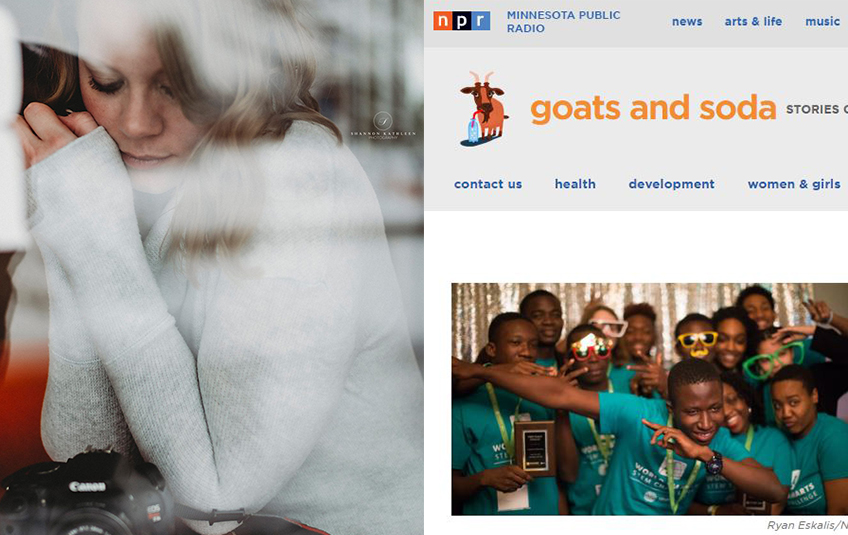
I love the NPR blog, Goats and Soda. It covers health, development, culture and a whole range of “stories of life in a changing world.” I think it’s so important in our quest to learn about hunger issues to also learn about the context in which people live. Stories play a crucial role in the fight against hunger, and it’s important we always tell people’s stories while maintaining their dignity.
Brook Felchle, International Programs Representative
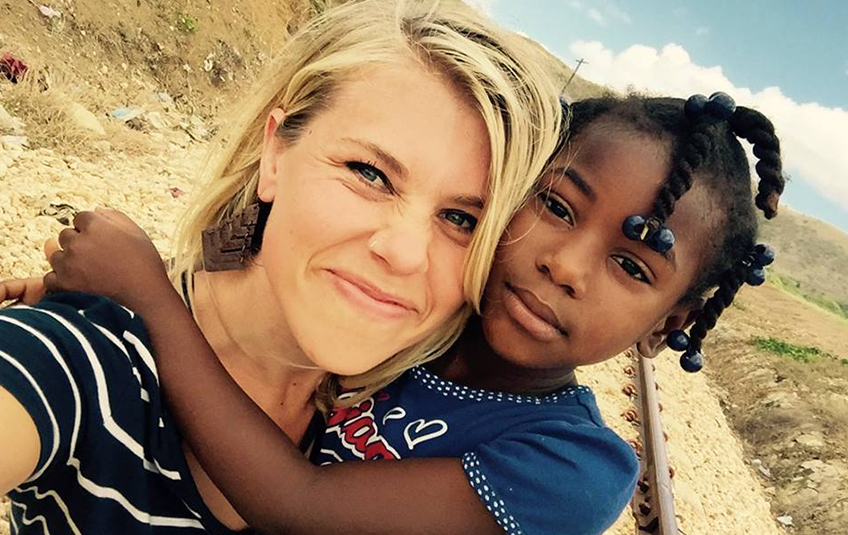
We are going through Walking with the Poor as a department right now and take time to talk through it each week.
The main thing I enjoy about the book is that it teaches us to see from the poor’s perspective. It has been showing us how to empower and listen to those we work with as opposed to going into a community thinking we have the answers that they need. It has also emphasized the fact that Jesus’ mission to the poor was so holistic, and as development workers, we also need to think in a holistic manner as we walk with the poor.
Sarah Wall, Event Planner
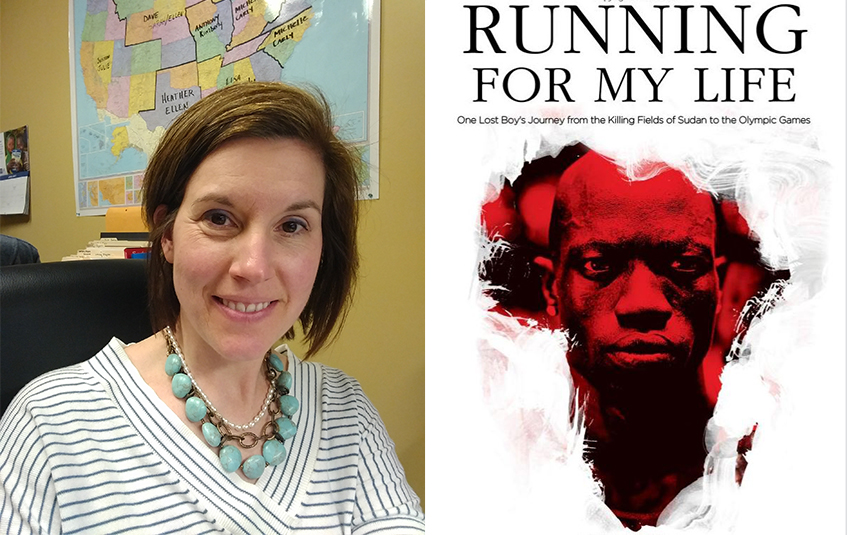
I relate to something best when I know it’s coming from someone first hand. That’s why I chose the book Running for my Life: One Lost Boy’s Journey from the Killing Fields of Sudan to the Olympic Games. This book helped me understand a refugee’s experience from an area of the world in the current famine and constant conflict. Here’s an excerpt from the book.
“The door opened on a far side of the hut. “Eat,” a soldier called out. He shoved a large bucket into the hut and slammed the door. All the boys rushed over to the bucket and dug in. Everyone was pushing and shoving so much that I didn’t know if I would be able to get close enough to it to find out what was inside. My three teenage friends, my three angels, found me. “Follow us, Lopepe,” one said. He pushed his way through the crowd. I held onto him and followed behind.
The bucket contained cooked sorghum. It was common food in Africa. The plant looks like corn in the filed, but the grain looks l lot like millet. Most people cook it into a porridge , or at least they soak the grains to soften them before they cook them. The rebel soldiers did neither. Normally cooked sorghum looks a little like oatmeal. This stuff looked like dirty mush.
When the soldiers slopped the sorghum into the bucket, they didn’t even drain off the excess water. It looked disgusting, but I was too hungry to care. I plunged both hands into the bucket and grabbed all my hands could hold. I sat down not far from the bucket and shoveled the grains into my mouth as fast as I could. Something hard crunched between my teeth. I spit it out, then went right back to shoveling food in. “Slow down, Lopepe,” my friend said. “This stuff is half sand. Eat it like this.” He sifted through the sorghum and ate grains individually. Other boys around the room weren’t as careful. A short time after we finished eating, I noticed several holding their stomachs and groaning. The food had made them sick.”
Josh Rockett, Mobile Manufacturing Manager
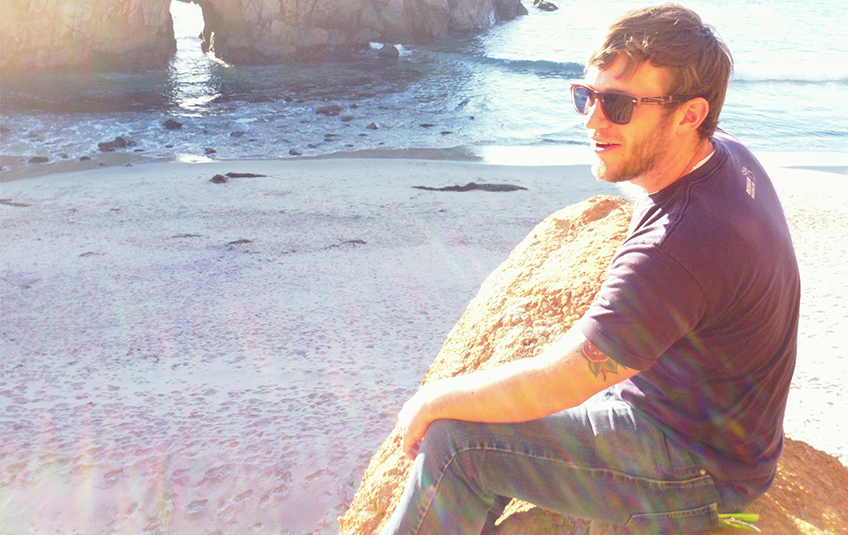
My favorite author is Wendell Berry. Living on a farm in Kentucky, Berry writes with a sustained attention to the particular. I have this poem hanging in my office and I try to read, or recite from memory, every day. It reminds us to break the hold of predictability that has gripped society and to make sure I don’t have a “window in your head” that often causes us to fall into apathy.
Instead of being comfortable with the status quo, Berry invites us to do things “that won’t compute”, and to, "Love the world. Work for nothing. Take all that you have and be poor."
The FMSC mission statement says “With God’s help , Feed My Starving Children will strive to eliminate hunger throughout the world…” Striving to eliminate hunger is a bold mission; a statement that the world would say “won’t compute.” But we believe and work each day to do exactly that. We feed undernourished kids because it is “investing in the millennium.” More importantly, it’s how we as staff and volunteers “practice resurrection.”
Manifesto: The Mad Farmer Liberation Front
Love the quick profit, the annual raise,
vacation with pay. Want more
of everything ready-made. Be afraid
to know your neighbors and to die.
And you will have a window in your head.
Not even your future will be a mystery
any more. Your mind will be punched in a card
and shut away in a little drawer.
When they want you to buy something
they will call you. When they want you
to die for profit they will let you know.
So, friends, every day do something
that won’t compute….
You can read the rest of Berry’s poem HERE.
Jenni Stafki
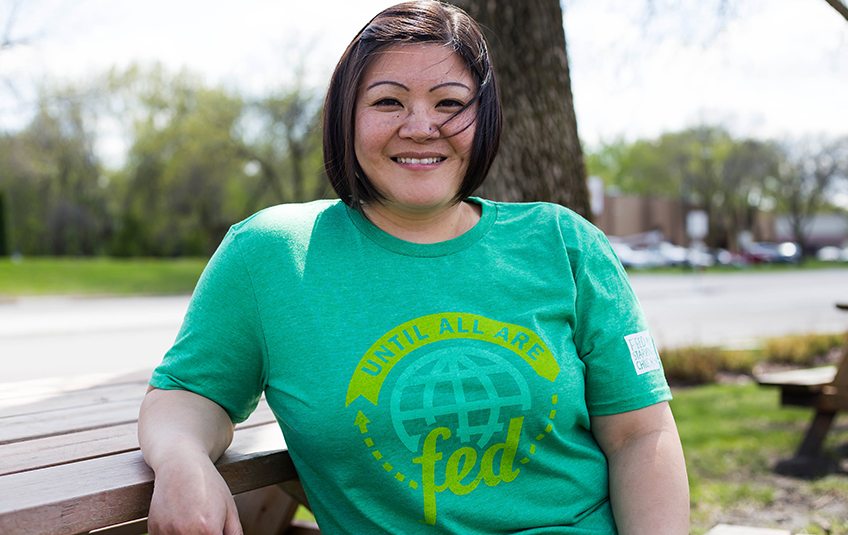
One book I recommend is When Helping Hurts: How to Alleviate Poverty Without Hurting the Poor…and Yourself.
What I loved about this book is how it broke down the complexity of poverty. Most of us have good intentions of wanting to help others, but sometimes our efforts do the opposite and can cause a further breakdown of the systems in impoverished countries. The book focused on strategies that would help and encourage sustainability which is ultimately what is needed to work toward alleviating poverty. I highly recommend this book; it was very eye opening and I love that it shows God’s heart for all of His children.
Adam Hanson, Senior Team Leader
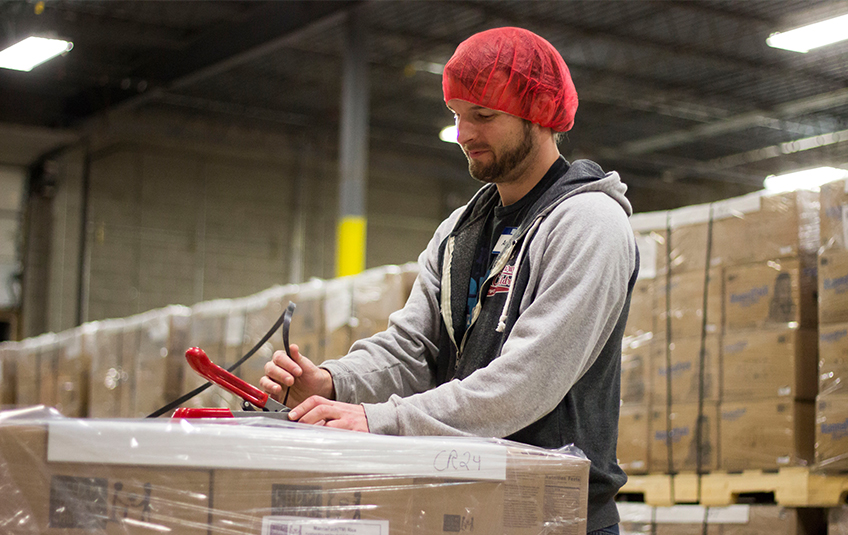
Love Does by Bob Goff is a short, easy read that always inspires me to get out there and love people like Jesus did! The way that God moved in Bob’s life to help people here in the U.S. and kids in Uganda reminds me of how God moves through people at FMSC and our partners overseas.
Mountains Beyond Mountains: The Quest of Dr. Paul Farmer, A Man Who Would Cure the World by Tracy Kidder – This book taught me a lot about Haiti and the perseverance it takes to make aid work there. The victories Dr. Farmer achieved there are miracles. They show that, though beyond these mountains there are more mountains, the climb is worth it.
Subscribe to The Feed
We'll periodically send stories of hope to your inbox.

